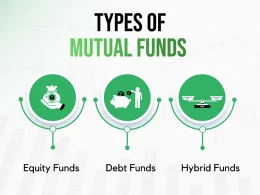The world of advertising has undergone a significant transformation in recent years, with digital platforms taking center stage. As consumers increasingly turn to online channels for information and entertainment, businesses have had to adapt their marketing strategies to keep up. Among the many players in this space, Google stands out as a leader in driving revenue growth through digital advertising. In this blog post, we’ll explore how Google’s innovations and initiatives are helping shape the future of advertising while providing benefits for both advertisers and consumers alike.
The state of digital advertising
In today’s digital age, advertising has become an integral part of our daily lives. As we scroll through social media feeds or browse websites, we’re bombarded with ads selling us products and services. This shift towards digital advertising has been driven by the increasing use of smartphones, tablets, laptops and desktop computers.
According to recent data from eMarketer, worldwide digital ad spending is projected to reach $455 billion in 2021 – a significant increase from the previous year. This growth can be attributed to several factors such as the pandemic forcing businesses to move online and people spending more time on their devices due to lockdowns.
As a result of these changes, advertisers have had to rethink their marketing strategies. They are no longer relying solely on traditional forms of advertising but instead prioritizing online channels such as Google Ads and Facebook Ads that allow for targeted messaging based on user demographics.
The state of digital advertising remains strong with continued growth expected in the years ahead.
Google’s role in digital advertising
Google is undoubtedly the kingpin of digital advertising. It has a staggering 92% share in the search engine market, and its ad revenue amounted to $134.8 billion in 2019 alone! What makes Google so dominant in this space is its unmatched ability to target specific audiences with relevant ads.
Google’s AdWords platform allows businesses to create highly targeted campaigns based on factors such as location, demographics, interests, and keywords. Advertisers can also use Google Analytics to track user behavior and optimize their campaigns accordingly.
But it’s not just search advertising that Google excels at; it’s also making significant strides in display advertising. Its Display Network reaches over 90% of internet users worldwide through partnerships with millions of websites, mobile apps, and video creators.
Moreover, Google continues to innovate by introducing new tools such as Smart Campaigns that leverage machine learning algorithms to automatically create compelling ads for small businesses without needing any design experience.
It’s safe to say that digital advertisers would be lost without Google’s vast reach and powerful targeting capabilities. As long as the tech giant keeps evolving its ad platforms while keeping user privacy top-of-mind – we can expect continued growth in digital advertising spend for many years ahead!
The benefits of digital advertising
Digital advertising offers numerous benefits for businesses of all sizes. One of the biggest advantages is its ability to reach a highly targeted audience. With digital ads, you can narrow down your target market based on demographics such as age, location, interests and more.
Another benefit of digital advertising is its cost-effectiveness compared to traditional forms of advertising. Digital ads often have lower costs per impression or click than print or television ads, making them a great option for small businesses with limited budgets.
Digital advertising also allows for real-time data tracking and analysis. This means that you can quickly identify which ad campaigns are generating the most engagement and adjust your strategy accordingly.
In addition to being measurable, digital ads are also flexible in terms of their format and placement. From display banners to video ads, there are many ways to showcase your brand online across various platforms including social media sites like Facebook and Instagram.
Digital advertising provides businesses with unparalleled precision targeting capabilities while still being cost-effective and flexible enough to adapt as needed based on real-time data insights.
The future of digital advertising
The future of digital advertising looks promising, with new technologies and platforms emerging every day. As consumers spend more time online, advertisers are finding innovative ways to reach them through targeted ads on social media, search engines, and other websites.
One trend that is likely to continue in the coming years is the use of artificial intelligence (AI) in digital advertising. AI-powered algorithms can analyze vast amounts of data to identify patterns and predict consumer behavior, allowing advertisers to deliver highly personalized messages to their target audience.
Another area where we might see significant growth is mobile advertising. With more people accessing the internet via smartphones and tablets than ever before, brands will need to create mobile-friendly ad formats that resonate with consumers on smaller screens.
As privacy concerns become more prevalent among consumers worldwide, we could see a shift towards contextual advertising. This type of advertising focuses on delivering relevant ads based on a user’s browsing history or search queries rather than relying solely on personal data such as location or age.
The future of digital advertising holds many exciting possibilities for brands looking to connect with audiences online. By embracing new technologies and staying ahead of industry trends, businesses can ensure they remain competitive in an ever-changing landscape.
Conclusion
Digital advertising has become an essential part of any business strategy in today’s world. It provides a platform to target specific audiences, measure the performance of campaigns and increase revenue growth. Google continues to lead the way with its innovative technology, allowing businesses to advertise effectively and efficiently.
As we move forward, we can expect further advancements in digital advertising that will enable businesses to reach even greater heights. With the use of artificial intelligence and machine learning algorithms, personalized ads will become more prevalent than ever before.
It is important for businesses to embrace these developments so they can stay ahead of their competitors and continue growing their revenue streams. As consumers increasingly turn towards online platforms for their shopping needs, it is becoming evident that digital advertising is not just an option but a necessity.
Therefore, by understanding the state of digital advertising, recognizing Google’s role in it and appreciating its benefits while keeping up with future trends one can make sure to reap maximum rewards from this game-changing innovation!












